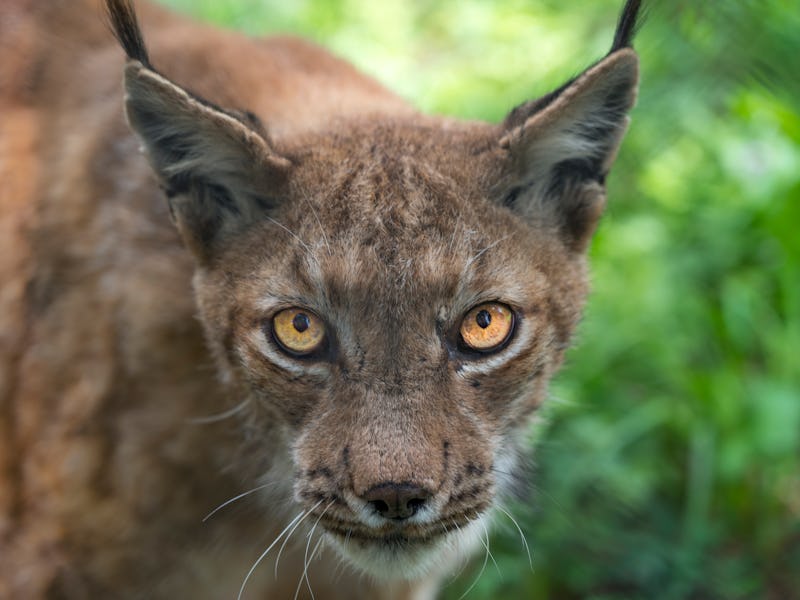Exotic Cats Can Recognize People by Voice Alone, a New Study Shows
These felines are less asocial than we thought.

Exotic cats are far different from your average housecat. But it turns out they possess one fascinating trait in common with our favorite feline companions.
Psychology researchers from Oakland University in Michigan published a new paper today in the journal PeerJ Life & Environment that shows non-domesticated cats like lions, tigers, and cheetahs can distinguish human voices.
Extensive research on domestic cats shows pet kitties can tell the difference between a voice of a friend or a stranger. A 2013 paper concluded that cats can tell people apart from voice alone, and a 2022 paper went a step further to find that cats even intuit when their owner baby-talks to them. For exotic cats under human care, like those in this study, the answer had yet to be investigated in the same way until now. The answer, however, bears importance on these felines’ relationships to their caregivers, as well as how researchers regard their social cognition.
Gordie the Canadian lynx listens to three recordings of a familiar voice, a less familiar voice, and an unfamiliar voice saying, “Good morning, Gordie, how are you doing this morning?”
The paper details two experiments of 24 total captive cats representing 10 species including the clouded leopard, snow leopard, fishing cat, cougar, serval, sand cat, and Canadian lynx. The first experiment involved 7 cats of 5 species listening to recordings of three different voices greeting them both with and without their names. One voice was familiar, one was less familiar, and one was entirely unfamiliar. The main study of all 24 cats also utilized recordings, presenting first a recording of an unfamiliar voice and then of a familiar voice, creating a stark contrast between the two.
The authors measured the speed and intensity of each cat’s response to the recorded greetings. For example, did a cat swivel its head at all toward the sound? Did its eyes flicker to a new spot? Did its ears twitch? Did it hiss or growl?
Cats consistently responded more quickly to the familiar voice, and these responses lasted longer. This response indicates that, indeed, non-domesticated cats distinguish people by voice. With the newfound knowledge that exotic cats possess this social cognition, researchers can re-evaluate their social prowess, and exotic cat caregivers can know that the simple sound of their voice means something to these animals.